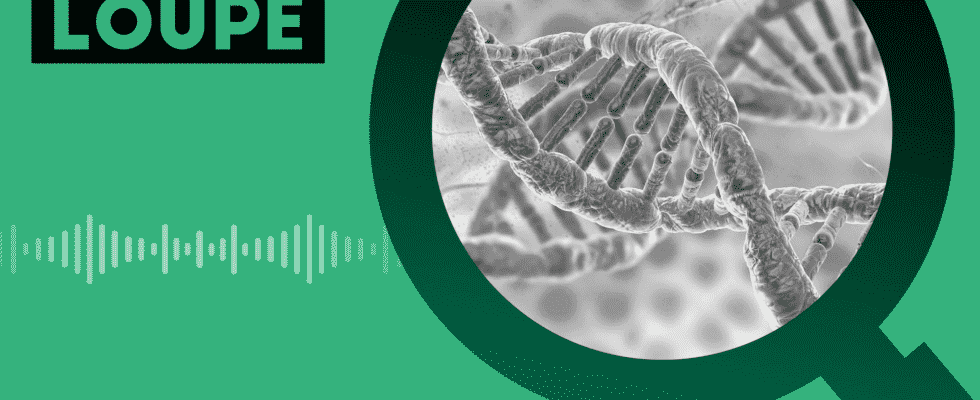In this new episode of La Loupe, Xavier Yvon examines the link between DNA and our immune system with Bruno Cot, editor-in-chief of the Sciences department of L’Express, and Lluis Quintana-Murci, population geneticist, professor at the Pasteur Institute and the College de France.
Listen to this episode and subscribe to La Loupe on Apple Podcasts, Spotify, Deezer, Google Podcasts, Podcast Addict And Amazon Music.
The team: Charlotte Baris (writing), Xavier Yvon (presentation), Mathias Penguilly (editing) and Jules Krot (directing).
Music and design: Emmanuel Herschon/Studio Torrent
Image credits: iStock
Logo: Anne-Laure Chapelain/Benjamin Chazal
How to listen to a podcast? Follow the leader.
Xavier Yvon : Often, when we open our archive cabinet to put it away, we play a little game with the La Loupe team. We describe an episode, and the first one who finds what podcast it is about wins… So I decided that today we are going to do this riddle together… We will see how long it will take you to find the episode that I will summarize for you…
In an Indiana Jones atmosphere, Bruno Cot, the head of the Sciences department of L’Express, introduced us to paleogenetics. A discipline that looks at the DNA of our distant ancestors, to shed light on the history of humanity. By reading bone fragments, we learned, for example, that Neanderthal man did not necessarily resemble what archeology had taught us…
So have you find it ? The episode was called “Skeleton surprise”, it dates from November 2021…
Bruno also told us how paleogenetics made it possible to shed light on the waves of migration in Europe, and therefore our origins…
Bruno Cot : In addition to the 2% of DNA sequences from Neanderthal man. For the rest, we are completely sapiens and have sequences from the Paleolithic hunter-gatherers at 8%. Nearly 60% coming from farmers who came from the fertile crescent characteristic of the Neolithic era, and approximately between 30 and 40% (it depends) from a completely unknown people who we had not seen passing by, who are called the Yamnayas, in direct from the steppes of the northern Black Sea.
Xavier Yvon : Together, we then discussed some of the applications of paleogenetics. For example, questioning racist or sexist preconceived ideas, or even better understanding the spread of the Covid… If that intrigues you, the best thing is to go and listen to this episode in full…
Because today we are going to use all our knowledge of paleogenetics to focus on our immune system.
How do the genes of our ancestors still influence our daily health? And how researchers could use it to treat us in the future, for example by cutting up our DNA…
For further
PODCAST. Nobel Prize in Medicine: How Paleogenetics Helps Us Understand Humanity
Human origins: how genetics is rewriting our history
